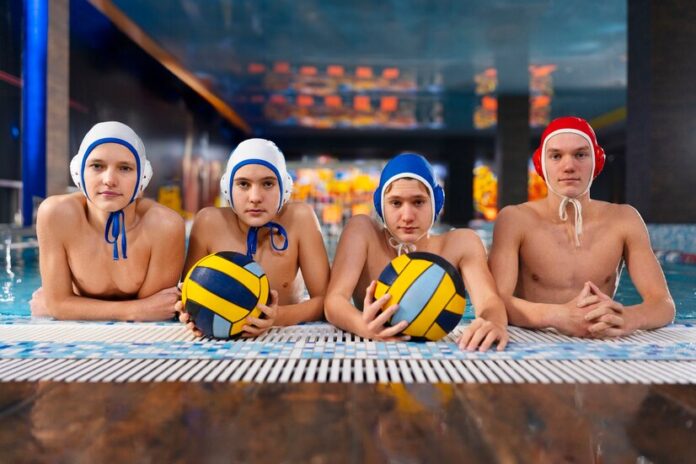Joining a swim team isn’t always about improving swimming abilities or staying physically in shape; it’s a transformative experience that builds self assurance and fosters a strong feel of teamwork.
These factors are important in private improvement, specially for young swimmers, offering them with treasured life competencies that increase some distance beyond the pool.
Building Confidence Through Achievement
Swimming, with the aid of nature, is a game that demands both the thoughts and frame. For many individuals, especially young swimmers, joining a swim team is their first experience of structured training and competition.
Achieving personal bests or studying new strategies provides a substantial self assurance enhancement. Each small achievement helps swimmers to look that they are capable of overcoming demanding situations through perseverance and tough work.
Improved Communication Skills
At Gold Medal Swim School, we recognize the vital role that communication plays in the development of young swimmers. Similar to how swim teams provide a social setting for enhancing communication skills, our school fosters an environment where children not only learn swimming techniques but also practice effective interaction with coaches, peers, and instructors.
Through regular interactions during lessons, group activities, and team-building exercises, our students learn how to express themselves confidently and listen attentively to others.
Teamwork in an Individual Sport
While swimming is regularly regarded as a man or woman sport, being part of a swim group introduces a communal factor that is rich with possibilities for growing teamwork abilities.
Swimmers learn to guide their teammates at some stage in practices and competitions, cheering them on and offering words of encouragement.
The Role of Coaches in Fostering Teamwork
Coaches play a pivotal position in cultivating a team environment that values cooperation and mutual appreciation. They set the tone for the way crew individuals engage, making sure that everyone swimmers feel valued and critical to the group’s fulfillment.
Good coaches emphasize the significance of each swimmer’s contributions, from the fastest athlete to the maximum progress.
Responsibility and Leadership
Being part of a swim team teaches responsibility. Swimmers learn how to be responsible no longer best for attending practices and meets however also for his or her performance and mind-set towards teammates.
Senior team contributors frequently take on leadership roles, mentoring more youthful swimmers and helping manipulate team activities.
These responsibilities inspire adulthood and may profoundly affect a man or woman’s potential to steer and inspire others.
Coping with Pressure and Stress
Competitive swimming can be severe, setting swimmers beneath strain to perform at their pleasant all through meets.
This environment teaches swimmers the way to control stress and anxiety, abilities which might be transferable to different areas of existence consisting of teachers and private relationships.
The potential to live calm under stress is a treasured talent, and ordinary exposure to aggressive situations can help younger athletes expand this.
Learning from Failure
A crucial part of being on a swim team is gaining knowledge to address unhappiness. Not each race will be a personal best, and no longer every purpose can be immediately potential. Swimmers discover ways to view screw ups as possibilities for boom in preference to setbacks.
This mind-set, often referred to as a boom attitude, is important for long-term success in all regions of lifestyles. It encourages a method to lifestyles that is resilient, positive, and open to non-stop getting to know.
Emotional Support System
The swim team surroundings obviously fosters a robust assist system among teammates. Swimmers rejoice in each different successes and luxury one another in times of sadness.
This camaraderie can be a vast source of emotional aid, specially for younger athletes who are navigating the complexities of growing up.
The relationships built within swim groups can remain a life-time and provide a community of buddies who share a completely unique bond through their shared reports inside and outside of the pool.
Setting and Achieving Goals
Swim groups inspire setting person and team goals, which is a crucial aspect of personal development. Goal placing helps swimmers focus their efforts, monitor their progress, and live promptly.
Achieving goals that have been set offers a concrete feel of feat, while striving towards them builds discipline and determination. These stories train swimmers the significance of putting goals in life, laying a basis for future successes in diverse fields.
Enhanced Time Management Skills
Balancing faculty, swim exercise, meets, and different life activities calls for effective time management capabilities. Swimmers learn how to prioritize duties, control their time effectively, and make sacrifices to meet their commitments.
These competencies are particularly useful as younger athletes transition into adulthood, where coping with multiple obligations will become an increasing number of essentials.
Conclusion
Swim groups do an awful lot extra than simply teach people a way to swim higher; they nurture self assurance and sell teamwork. These talents are vital for personal improvement and may significantly influence an individual’s fulfillment in numerous regions of existence.
Through the guide of coaches and teammates, swimmers now not only enhance their athletic capabilities but also become assured, collaborative, and responsible people.


